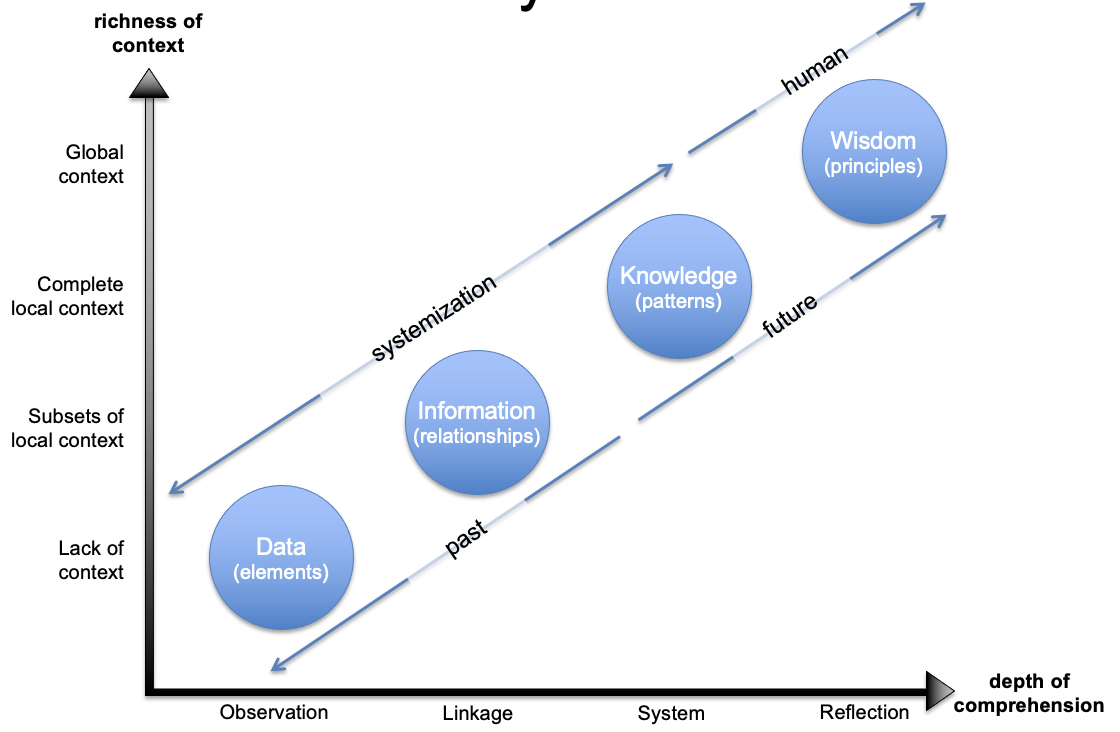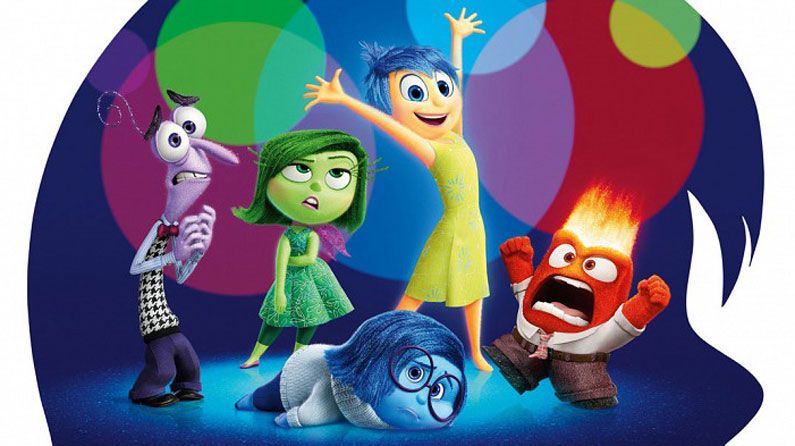Humankind has experienced the Age of Enlightenment, characterized by huge advances in science, art, and philosophy, to name a few. Then the Industrial Age, where the science was applied to create automation and mass production that enabled more convenience and service to growing populations. We are now officially in the Information Age, where information is the resource around which industry and society revolve.
While it is clear that information is still an immensely valuable resource, another sociological phenomenon is taking place concurrently that is not adequately captured under this title, and this is (1) evolution from the corporeal self to the digital self, and thus (2) becoming part of the ‘machine.’ I call this the Age of Surrender.
In the 80s kids would play early video games like Pac Mac and Q*bert. Games became far more sophisticated in the 90s and 00s with simulation and role playing games with first person views. But they were still games and we shut them off when told. However the rise of the digital community carries the additional social demand of availability. I am summoned through my VR headset to participate in a multiplayer immersive game that feels quite real (and evokes real hormone responses) where I am represented by a digital avatar who my comrades recognize as me. I curate my digital self with digital weaponry, clothing, skills, and of course, dialogue and presence.
From a social standpoint, much of our lives have shifted from the in-person to the phone, to social media today. Our communications and visibility are no longer 1-to-1, or 1-to-some, they are 1-to-world. Not only does this make us minor celebrities, but it necessitates communications to be meticulously curated to once again manage and protect our digital existence. Birthday wishes are broadcast to the world; comments on trip photos are viewable by anyone; our selfies are reusable by anyone anywhere. This obviously requires skilful curation.
Given that our digital selves exist without time zones, and have a potential reach as great as Drake or LeBron, digital identity management has become an obsession, and like most obsessions, consumes an inordinate quantity of our time and effort, as well as our concentration. Even in those moments we are not curating ourselves, we are managing our digital identities with carefully constructed comments on the digital lives of other people, causes, or organizations.
What was once shopping for the right brand of jeans is now shopping for the right cause to which one wants to identify and hashtag. It’s attending the equivalent of an online protest against some despotic leader or product of a company engaged in malfeasance against the environment. Managing a digital identity today takes far more work than simply acquiring a fancy wardrobe.
With all this effort put in to our digital selves, there is a commensurate decline in the effort put in to our corporeal selves. Test scores show less effort in learning. Mortality statistics show less interest in healthy living. Anecdotally, declines are visible in hygiene, fashion, arts, hobbies, and myriad other things. On a Zoom call it’s quite apparent the relative declining interest in physical appearance, engagement, conversation skills, and availability. People are preferring to quit their jobs than turn on their cameras, assumedly to neglect their appearance and to remain hyper engaged in the perpetual call of digital identity curation.
We are willingly transitioning from a corporeal existence to a digital identity, like the Matrix movie, or Avatar. It is fascinating, and difficult to understand given how hard people have fought for rights and freedoms in real life to watch them be surrendered for a concocted existence. Let’s explore why.
Life is difficult for many people. Historically this has always been the case, and given rising standards of living, justice, equality, etc., along with lower crime, bigger communities, more connectedness, etc., one would believe that life is getting easier or better for people. However, if pharmaceutical use is a useful measuring stick, people are struggling more now than at any time in the past, including during prolonged wars, famine, depression. This is not to suggest those pills weren’t needed in the past had they been available (many were), but the usage today is quite broad including among younger members of society who otherwise experience severe depression, anxiety, ADHD, and other ailments.
I have often said that the purpose of life is to unapologetically and in full plumage be what you were born to be. I have no great foresight, but I’m fairly confident that no creature was born to be a digital celebrity, managing their digital identity 24/7 while monitoring those of others to remain fully engaged in this digital existence. The pressure is overwhelming, and the pursuit is vapid and without benefit. I would have trouble with my existence if I thought there was nothing more to life. I’d have even more trouble when exposed to experiences in life where I felt I needed to remain in constant digital vigilance.
All of this gives rise to part (2), which is the consequence to society. The above describes the loss to the individual from the surrender of the corporeal self, but for this to be an Age there must be a corresponding sociological effect, and there is. This is the mass surrender of self empowerment and the corresponding shift of responsibility to the parent proxy (PP).
Roger Martin wrote a great book called The Responsibility Virus where, in the workplace, one can observe the overbearing boss disempowering her employees by micromanaging tasks, and the employees responding by becoming more reliant on the boss to get things done. Both parties are unhappy and suboptimal outcomes are achieved, and this unfortunate outcome only requires the surrender of power from one side.
This same effect is evident in all dynamics where an overbearing leader will sap the power in a population. They learn to be helpless, expecting of the leader to solve all issues, including their own. The more reach the leader exhibits, the more prolific the virus.
Society has given rise to the Helicopter Parent who, despite being well intentioned, absolves their children of worry by taking it all them self. This has taught children that their life worries are the job of another person – a very confusing but comforting understanding, and really works nicely with the new primary job of the child, which is to exist in the digital space.
But parents are not the only origin of the virus in modern society. Repeated bailouts of Fortune 500 companies like GM and American Express have taught investors that PP will ensure they don’t fail. COVID cash and handouts have funded small businesses, students, seniors, everyone really. These financial worry shifts have, of course, not been equal across society, but the release of trillions of dollars attempted to provide financial support for all entities.
Leading up to this, society as been shifting responsibility for things like education, morality, and many other things to a PP. Schools are regarded as the sole responsible party for education, despite the unprecedented quantity of information available at our fingertips. Doctors are solely responsible for our health, despite the vast health information available for us to maintain our own health. Governments are picketed to take action rather than individuals and groups taking action directly against some perpetrator. And the list goes on because PPs are overextending by doing things like closing off nature to us, erecting more and more fences and barriers, and generally taking away risk and control.
It is easy to give up control on the premise that someone else has ‘got it.’ The phenomenon known as bystander apathy is all about thinking someone else has ‘got it.’ Most of these relationships evolve this way without fully understanding what is being lost.
What is lost is our very free will. Our creativity, our participation, our power, our strength and diversity. Our ability to function independently, and our confidence in doing so. It has disempowered our children so that they are dysfunctional as they need to enter the world and compete and self sustain. And as adults, we are a society of whiners who record “Karens” and post the videos online so they can be lambasted in the flaccid manner that is done today – a comeuppance that lacks any impact.
Ronald Reagan famously said, “Government is not the solution to our problem, government is the problem.” If we see what we’ve become and permitted, we have a chance of wresting back the power we’ve ceded, if we want it.
Living includes risk and lack of control, and things that may result in pain, failure and humiliation. That is life. Personally, I’d trade 100 lifetimes of the responsibility virus for 1 hour of complete freedom, but we all dance to our own drummers.







